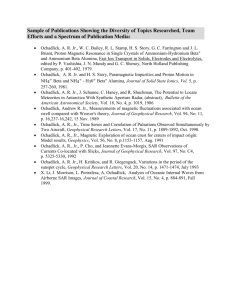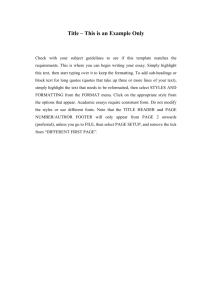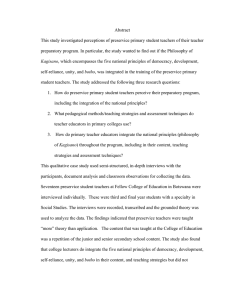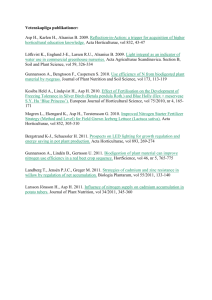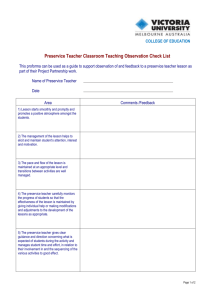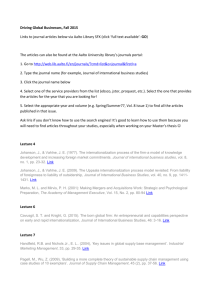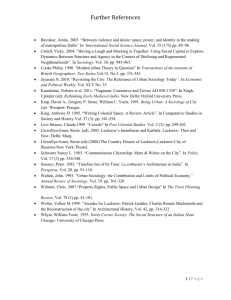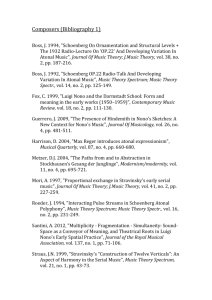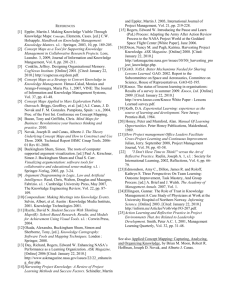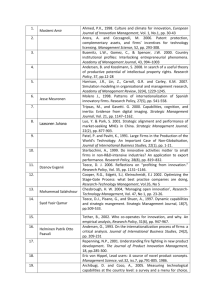Listening and Learning: Lesson Planning for Instrumental Ensembles
advertisement
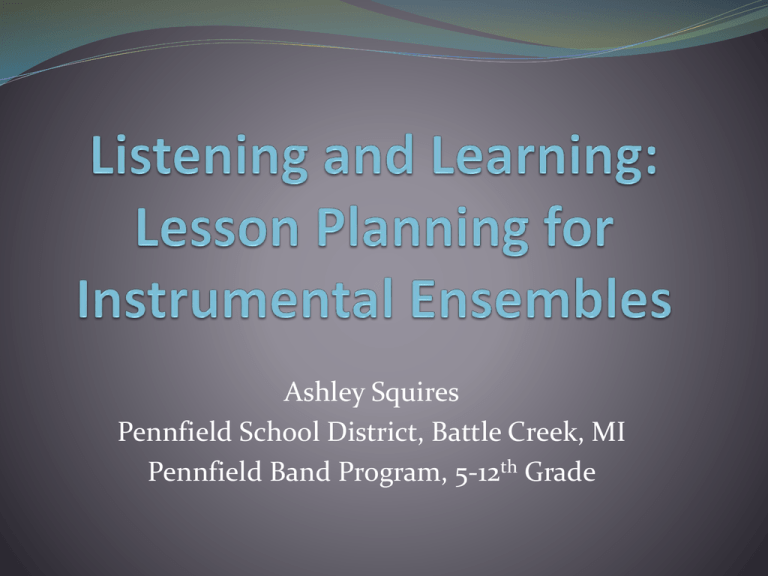
Ashley Squires Pennfield School District, Battle Creek, MI Pennfield Band Program, 5-12th Grade “Create a lesson plan…” “Warm-ups, scales, and songs.” Why do I need to lesson plan? What is there to do? “The foundational contexts of education don’t apply to music classrooms.” How do MEAP scores and reading/writing skills apply to what I do in my classroom? What’s First in Lesson Planning? Consider the instrumentation of your ensemble… Picking the Right Music… What music is currently at their technique level? What can they realistically achieve in a semester? What are the goals for this music? “Well, I can push them farther if…” Directors who purposely choose music that’s beyond currently student technique level… Students will feel they have failed Set single, short-term semester goals: Clarinet section masters light-tongue articulation More expressive legato playing for baritone student For Example: The Marching Band 2009: Chose music that was technically too hard, marching suffered as a result 2010: Chose music at current technical level, marching made vast improvements, earned 1 rating at festival Another Example: The MS Band Chose song at technical level: Portsmouth Overture 73 students – 8 trumpets – 3 first trumpets Used compositional software to compose additional parts Added five additional musicians to the melody Back-up plan: Add middle-range bassoon voice to the mix “Listening and Learning” The teacher’s perspective Key signatures, rhythmic patterns, note fingerings, breath support, articulations… “. . . students who are speaking six different languages at the same time . . . you’re the only one responsible for interpreting them all.” Understanding the strengths and weaknesses of your program A Right or Wrong Way? Pre-service Teachers vs. Experienced Teachers “[Teachers] with more-structured plans give significantly more approvals, and their students have significantly higher achievements when compared to those using lessstructured plans.” “Experienced teachers used fewer words than undergraduates but revealed the same number of strategies and level of detail, on average.” -Ruth Britten, Preservice and Experienced Teachers’ Lesson Plans for Beginning Instrumentalists, Journal of Research in Music Education, vol. 53, no. 1, 26-39. “Teacher-educators often use pre-service teachers' lesson plans and post-teaching reflections as windows to understand their thinking about teaching and, ultimately, their observed teaching behaviors. While a cycle of planning, teaching, and reflecting after teaching may seem straightforward, it can be difficult for a beginner to enter the cycle.” “The paradox of learning a really new competence is this: that a student cannot at first understand what he needs to learn, can learn it only by educating himself, and can educate himself only by beginning to do what he does not understand.” (Sch[Formula Omitted]on, 1987, p. 93) -Margaret Schmidt, Preservice String Teachers’ Lesson-Planning Processes: An Exploration Study, Journal of Research in Music Education, vol. 53, no. 1, 6-25. “My lesson plans serve as an outline for my rehearsal days. I already know what music needs the most attention and I divide up my rehearsal time accordingly.” -16 year experienced teacher “I find that, with materials I am familiar with, I don’t need to spend much time pre-planning. However, when I’m working with new materials . . . I find I take more time to review and prepare for my upcoming lessons than I would normally need.” -9 year experienced teacher Bibliography Ruth Britten, Preservice and Experienced Teachers’ Lesson Plans for Beginning Instrumentalists, Journal of Research in Music Education, vol. 53, no. 1, 26-39 Margaret Schmidt, Preservice String Teachers’ Lesson-Planning Processes: An Exploration Study, Journal of Research in Music Education, vol. 53, no. 1, 6-25 Timothy Oliver, Score Study and the National Standards: Partners in the Planning Process, Teaching Music, vol. 14, no. 2, 45-50 Jane Bradley, The Short Music Lesson: Success in Half an Hour a Week, The American Music Teacher, vol. 51, no. 5, 20-23 Mark Waymire; Todd Snead, From Good to Great: 9 Tips for Motivating Your Band, Teaching Music, vol. 15, no. 1, 28-32 5 music educators/professionals active in the field Thank you for listening and learning with me!
